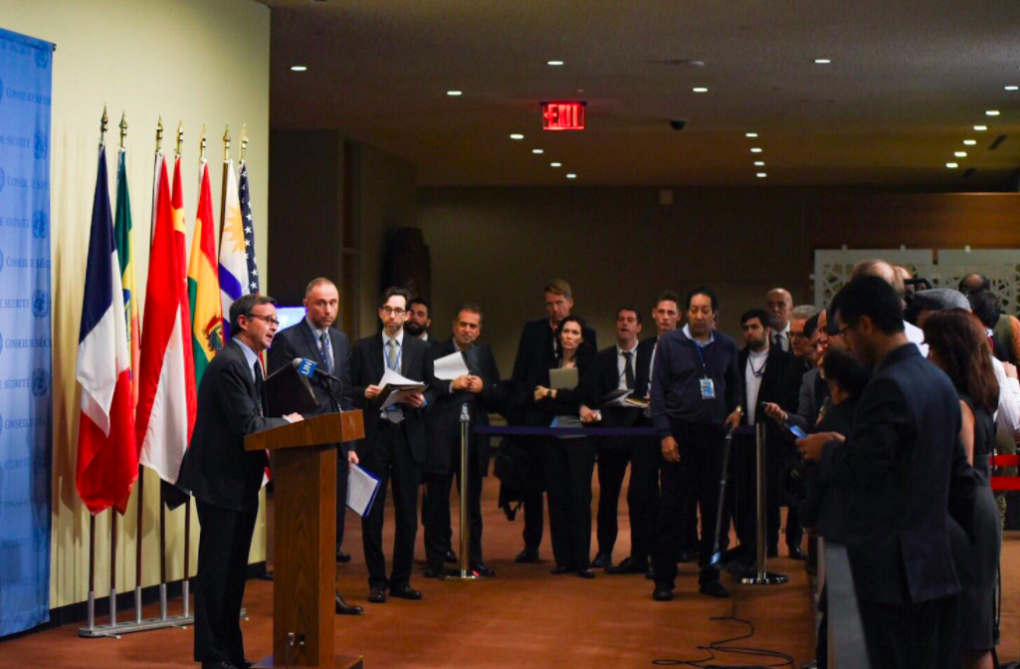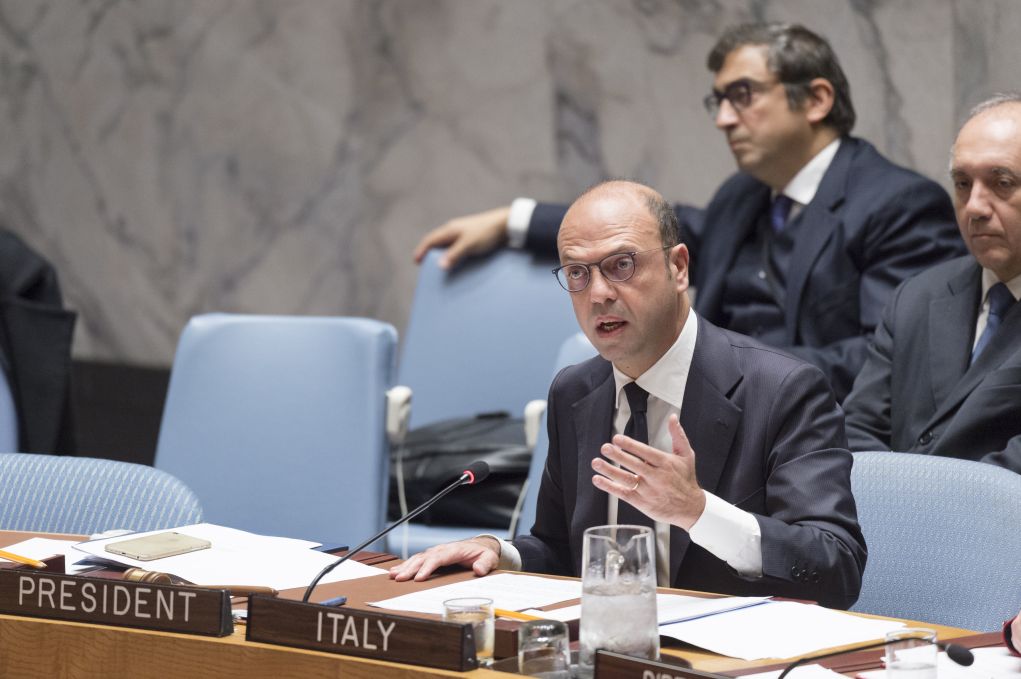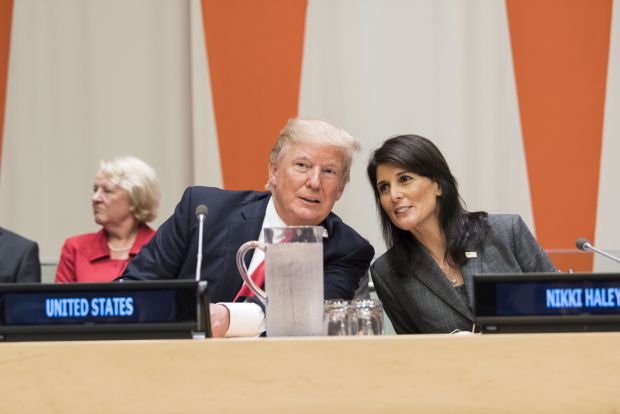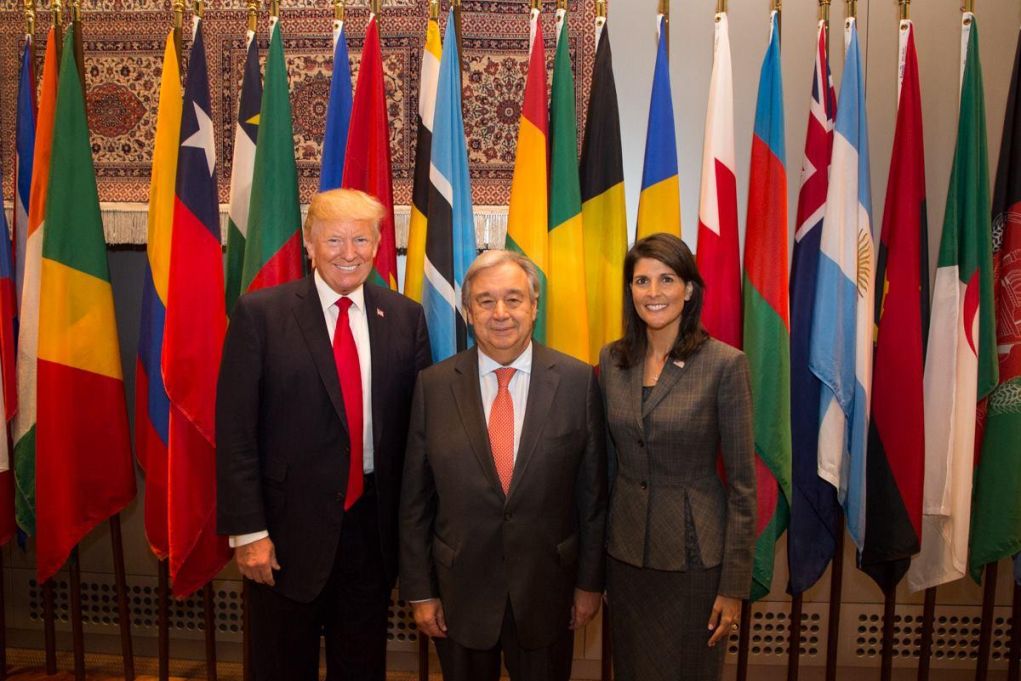Year 2017 has been the year that Italy was at the Security Council of the United Nations. A year in which various emergencies have been dealt with, a year of great change and old problems, in which the topic on human rights, immigration and the threat of nuclear arms proliferation have dominated the conversation the most.
Of the 15 members of the Council, 5 are permanent: The United States, the Russian Federation, China, the United Kingdom and France. The other 10 instead are non-permanent rotating members that preside and leave the post every two years. For our country, however, after the agreement reached with Holland on the division of the post in 2016, only one out of the two years went to Italy (both Italy and Holland obtained 95 preferences at the General Assembly and this deadlock was resolved after five failed attempts, thanks to a personal encounter lead by Foreign Ministers Bert Koenders and Paolo Gentiloni, along with their delegations).

From January 1, 2017, Sebastiano Cardi has presided over the Italian seat for Italy. A long-time diplomat, with experience in Beijing and Paris, the ambassador is not new to the UN environment where, during the ‘90s he was the spokesperson for the unforgettable Francesco Paolo Fulci, the so-called gladiator, the ambassador who knew how to say no to the United States when they wanted to push for a Security Council reform, which would have brought Germany and Japan to be permanent members. From September 16, 2013, it is instead Cardi at the helm with the rank of ambassador of the Permanent Mission in New York. From the UN building, in the elegant East Lounge, we spoke with him regarding the role that Italy has held in the current Security Council and about the prospects starting in 2018. (HERE the link to the complete interview, above, an excerpt).

Ambassador Cardi, these have been twelve long, intense months during a delicate historical period with so many open fronts: from Libya to North Korea, from Yemen to Myanmar, all the way to Syria. What has been the result, or in any case, the moment of which you are the proudest of your year at the Security Council and the most complicated moment, the most delicate?
“We can be proud of the Italian presidency in November, when we hosted the Foreign Affairs Minister, Angelino Alfano and Under Secretary Amendola. It was an important presidency because seeing as it arrived at year-end, in November, we were able to reap the fruits of all the work that we had set up from January, the entire program done in the Council. We did it through meetings, debates and approved resolutions”.

Among the hottest topics, the Mediterranean, about which has been long debated in the last 12 months.
“Certainly, we concentrated on the Mediterranean, on Libya in particular, to resolve the Libyan chaos, which has had an impact on the smuggling of migrants, of men, and that has been a large priority for Italy. Other topics close to our heart certainly have been the protection of the cultural heritage in the areas of conflict, for which we had already adopted an important resolution, with our input, and that which we then brought to the forefront in November”.
Why is the UN Task Force for the conservation of cultural heritage in crises so important for Italy?
“It’s not just a question of protecting the cultural heritage — which is already important in and of itself — it is important also because the destruction on the part of Daesh, for example, implicates the loss of heritage identity of these populations”.
Therefore, you confirm that protecting culture allows for maintaining security? There is a connection between the two?
“Protecting culture allows for maintaining an identity, and therefore avoiding even the exodus of these populations pursued by terrorism and the violence of terrorism. Let’s imagine the destruction of the Colosseum, something that for a Roman and for an Italian would be tragic. This happened in Palmira, in Syria, and in other places. And this aspect has certainly been a part of our stronger issues”.
Which were instead some of the more stressful moments?
“Certainly, there have been difficult moments in these months. In Syria, for example, we were not able under our presidency to renew the Joint Investigative Mechanism on the chemical weapons attacks in Syria (the JIM, halted three time by Russia, ndr) – not through a fault of ours, but because a permanent member state had vetoed it. This was certainly a shame, we did all that we could. The other difficult dossier was surely the North Korean one — perhaps the riskiest dossier today for world peace, and which implicates a risk of nuclear arms and ballistic missile proliferation”.

Human rights have been one of your strong points this year. In particular, though, on the North Korean front for international interests, and on the Libyan front for national interests, it has often been difficult to pass certain positions in relation to the protection of human rights. What have you been able to do most, both as prime ministers and as presidents of the Commission 1718 on sanctions control, and what have you been unable to do?
“With the case in Libya, we had that piece by CNN about a month ago and during our presidency, which described in detail a situation that is unfortunately very real, that is, the abuses committed against migrants in the Libyan camps. For this reason, our position has always been that of stating that we must manage the flow of immigration along with Libyan authorities and with international organizations such as the UNHCR, but we cannot certainly justify the human rights violations, which must be prosecuted. The same Libyan government—let’s remember that a government does exist in Libya—along with international organizations, must operate and closely monitor those that commit these acts of violence until these violations cease. For this reason, the Office of the United Nations High Commissioner for Refugees and the UN in general, must return to Libya, because they will be better positioned to prevent these abuses. Italy, however, well before the CNN video, had already brought this to the attention of the Security Council, and it is a subject that is not easy to manage in the Council, the subject of human trafficking, and not only those that occur in Libya. I believe that Italy regarding this can lay claim to the fact that we were the first to put this subject on the table”.
And regarding North Korea, what is being done? The latest reports show that the situation is at high risk, from the human rights point of view, for the population that lives in Pyongyang’s regime.
“As the presidents of the Sanctions Committee, we must make pay attention to recognized human rights violations; there is a difficult humanitarian situation, yes, and as presidents we have always tried to do everything possible to avoid that the rigid sanctions system, which would have an impact on the people. There are mechanisms that exist, and we are putting them into place”.
Italy is the first Western force with regard to the contribution of UN Peacekeepers. How important is it to be on the inside of the Security Council in order to reaffirm this role? Do you feel that the messages that you have sent in the course of the year have been received?
“Italy is the main Western country for the number of UN Peacekeepers involved in peace missions. Almost all of them are in Libya for the UNIFIL mission. Regarding this aspect, Italy has a very large tradition of peace operations, and this is recognized; it is not by chance that the ‘Italian method’ is often spoken of, which well combines the military element with the civil one, as well as the assistance of the population. In the case of Libya, seeing as we are the major contributors of troops, when it came time to renew the UNIFIL mission in the Council, we made sure that our voice was heard”.
We at La Voce di New York wrote that on that occasion you gave the world powers a bit of a slap on the wrist…
“Yes, some of the key players – two permanent members in particular — had certainly listened to us, but did not completely understand what we wanted and what our position was. So then, we had to give them a sort of slap on the wrist to best communicate our requests. In the end, however, our position was respected and we obtained that which we wanted”.
But aren’t you now fearful that Italy’s weight regarding major international issues will disappear, now that it is exiting the Security Council?
“Italy in any case will always remain present for the next year in the Council, through the agreement it has with Holland. After all, this year Holland did the same with us (in virtue of the division of the post, ndr). Italy is not such a small country and it is very much respected at the UN; on many dossiers on which we have a direct interest, from Libya to Lebanon, and in the Sahel region in general, our position will in any case be heard. Remember, for example, that with regards to the Libyan issue, well before we were assigned to the Security Council, our mission was already participating in making decisions, part of the decision-making phase, together with the members of the Council in anticipation of holding the seat. Italy has the capacity, the authority and holds enough weight to be heard even from the outside”.
Italian Ambassador to the UN, Sebastiano Cardi, during an address (Photo UN)
The Security Council reform: already twenty years ago, when you were the press officer to Ambassador Fulci, there was talk about this reform, but nothing ever came of it. After a year on the inside, what should be reformed?
“Yes, Italy began a long battle with Ambassador Fulci — that is still on-going – for a reform, not to obstruct it. We in fact believe that the Security Council should be reformed, also because it has essentially remained the the same for the past 76 years, if you think about it. At the same time, we see that the world has instead evolved and has undergone enormous developments from World War II onwards. Therefore, even the Security Council should evolve. But, it should do so to become more inclusive, more transparent, more democratic, without adding additional elements of privilege”.
When you speak of elements of privilege, to whom or what are you referring?
“For example, there are countries that aspire to have a permanent seat in the Council. There are already 5 permanent Member States with veto rights and we know how much the fact that they exist and that the veto tool exists, sometimes influences everything. Obviously with all due respect, and respecting their prerogatives that the UN Charter grants — but sometimes there are just so many complications”.
And therefore?
“Therefore we, as Italy, don’t ask that the current permanent members be removed, but we do ask that if there is to be a reform, it should not allow for new permanent seats that would increase the elitism of the Security Council instead of decreasing it”.

In this year at the Council, you have been witness to the onset of the Trump administration and that of Ambassador Nikki Haley (who a few hours after this question was posed tweeted the not so diplomatic phrase, “We will be taking names”, regarding the vote on Jerusalem expected to take place on Thursday, December 21st at the General Assembly, ndr). From climate to culture, from UN treaties on migrants to the veto on Jerusalem, the United States has often distanced itself from the rest of the international community. Were you surprised by some of these positions taken, or did what you more or less expected occur? Was there something that floored you?
“No, the Trump administration, along with their president, had made some announcements during their political campaign, and now they’re still maintaining them, therefore there aren’t any particular surprises. Actually, there is something positive to be said: in the face of some very critical statements made against the United Nations in the beginning, I believe instead that Haley’s work has brought the US to have a supportive role at the United Nations, and not one of retreat — a retreat that would obviously be dramatic for the organization, because the US is the first financial backer, and therefore the first supporter”.
How did Haley assume this position in the first ten months?
“Well, she demonstrated a very pragmatic approach, very positive. She even brought Donald Trump to the General Assembly for the meeting with Secretary General Antonio Guterres, where the reform effort conducted by the same Guterres was endorsed. Therefore, I believe that the Americans have locked the UN into place with a positive strategy. They ask for change, sure, but all of us ask for this, because the UN must become more flexible, more agile, and must be more efficient to confront today’s challenges”.

And so, at what point are we with Guterres’ reform process?
“It’s a long process, therefore it needs time. The reform should touch on the branch of peace missions, along with management (management and bureaucracy), and Guterres’ proposals in discussion by member states. They are interesting proposals, but it will be months before seeing them be put into effect or not”.
Just like with every young person, entering a diplomatic carrier has had different expectations. Now that you have become a UN ambassador and you have served Italy at the Security Council, do you feel fulfilled? What are your expectations for 2018?
“Yes, I feel fulfilled because these four years that I have been assigned to the UN have been intense, we have taken part in many delicate decisions regarding Italian foreign politics. Obviously, the expectation of increasingly becoming more fulfilled is always present, even as time passes, therefore I hope that the next roles will be just as interesting and stimulating”.
*Translated by Emmelina De Feo. Interview by Davide Mamone, Giulia Alice Pozzi and Stefano Vaccara. Shots and editing by Giulia Alice Pozzi. Text by Davide Mamone.










